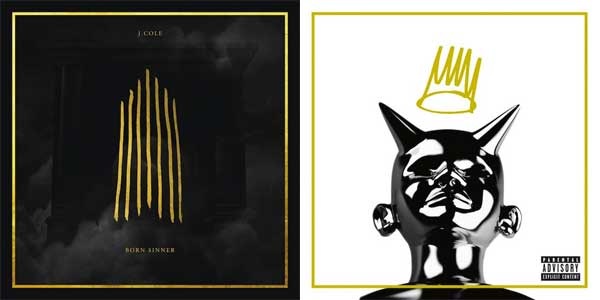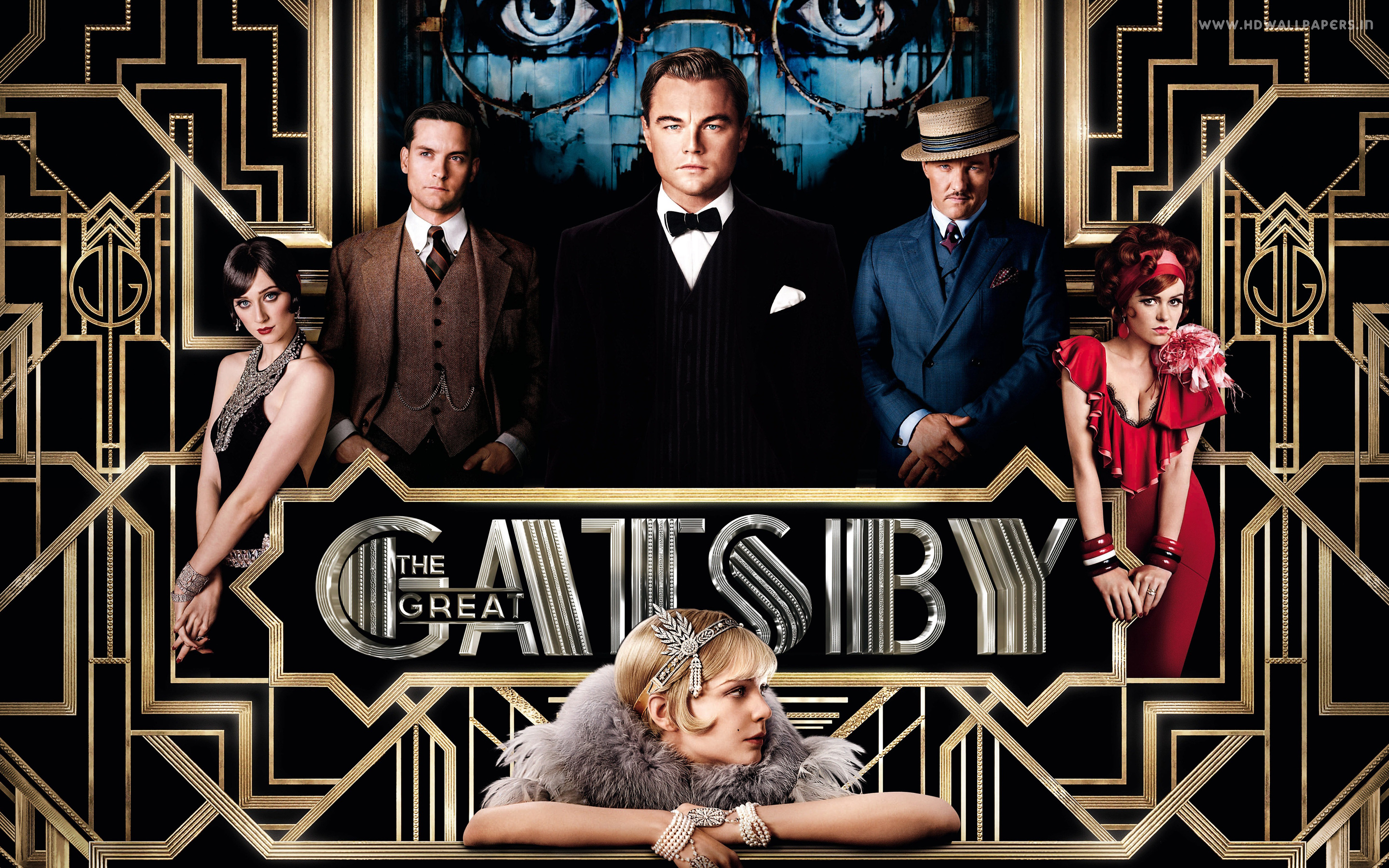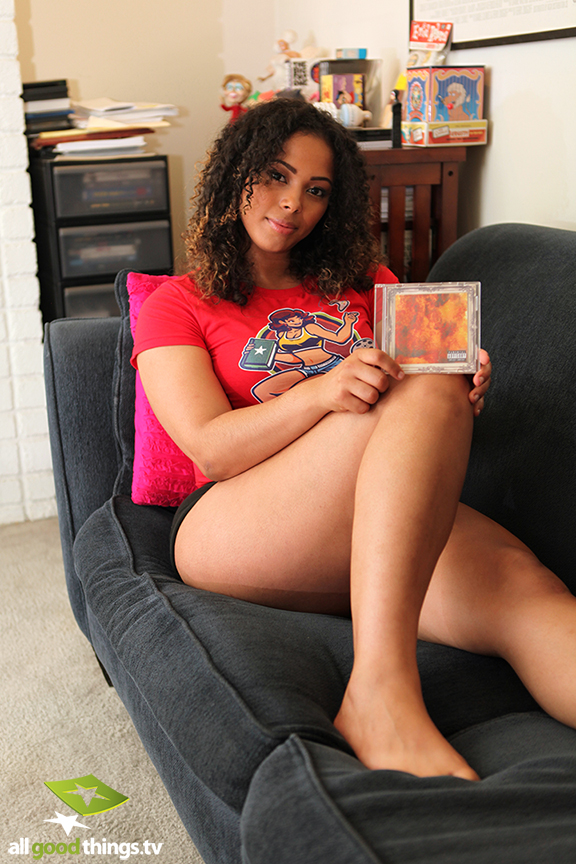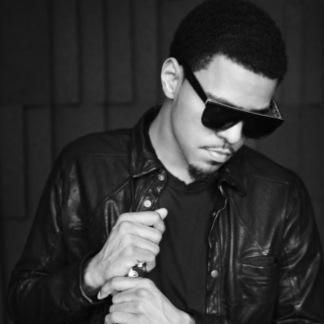Tabria Majors - Adore Me Haul Try On

J. Cole certainly seems to be in an enviable position in the current realm of hip-hop. He’s proven on releases like The Warm Up, his outstanding 2006 mixtape, that he has the chops to go bar for lyrical bar with some of the upper echelon rhymers in the game. Furthermore, he’s slated to release a collaborative album with rap’s favorite godson, Kendrick Lamar. And now, he shows that he has the stones to challenge Kanye West by releasing his album (which has a song boldly titled “Runaway” ) on the same day “just to show the boy’s the man now like Wanya”. So it’s not unreasonable to muse that with some good music Cole could rise to be hip-hop’s next obsession; however, despite proclaiming himself the “man,” J. Cole hasn’t really grown up much at all. He’s still rapping about the struggle of being a light skinned rapper and his obsession with fucking everything that smiles at him. Worst of all his music is, as always, so very safe. J. Cole showed the world that he’s capable of being a top tier rapper, but Born Sinner is not the incredible album J. Cole needs. It boasts only a few standout tracks, and while it’s still a better album than Cole World in every way, it has several flaws, the most glaring of which is that it continually taunts us with J. Cole’s obvious talent, but it refuses to ever display it for longer than just a few bars.
The album opens with immediate highlight “Villuminati,” sporting the best real beat on the album: a murky atmosphere layered with sharp drums and a “Juicy” sample. J. Cole “brag[s] like Hov” with some of his most cohesive rhyme schemes and effortless flow to date, and despite some left field homophobia (“Just a little joke to show you how homophobic you are /and who can blame you” ), “Villuminati” comes out as a great start to an album that slowly falls off. Lyrically, J. Cole has stepped his game up in several respects. One of his greatest liabilities in the past was that his rhyme schemes were far too basic to be interesting, and he made up for that by having exciting storytelling (“Lost Ones,” “Dollar and a Dream” ) and lively content in his raps. But on Born Sinner, his lyrics are much the opposite and his content quickly becomes tiresome. Nevertheless, J. Cole weaves his rhymes much more cleverly into his music, working them into quick and fluent flows so that they sound incredible and don’t seem as basic as they really are (the “Rich Niggaz” couplets of “I took a trip down memory lane/ And watching little Jermaine do his thang before he made a name” and “Probably kill for another claim to fame, my brain the same/ Yeah nigga, at least he ain’t insane” are examples of this) It’s these flashes of musical brilliance that give us hope, but they are so few and far between that they can’t make up for some of the poor decisions he makes.
In terms of beat selection, for the most part they are on point. The foggy synths of “Trouble” flow through a grandiose choral sample as Cole again makes the most of his simple rhyme schemes (“Gettin’ to the Promised Land, you don’t want problems, I promise man” ). There are a few missteps in terms of beats: “She Knows,” “Chaining Day,” and “Crooked Smile” – which is the most insipid song on the album (still an empowering message) – are all monotonous beats. But the worst decision J. Cole made was choosing to use the classic Outkast and A Tribe Called Quest beats of “Da Art of Storytellin Pt. I” and “Electric Relaxation”; it’s cool that Jay-Z shelled out for the beats but the fundamental issue with getting these tracks is that Born Sinner isn’t a mixtape; the appeal of spitting over classic beats on a mixtape is evident: you want to showcase your skills and give listeners something that they know as the backdrop for your lyrics, but to use the beats on an official album says that you want your iteration of the song to challenge the original, and J. Cole’s songs are not even close to strong enough to even get in the ring. Essentially, J. Cole’s selection of those beats automatically means that two songs on the album are completely forgettable (furthermore, Kendrick Lamar, who doesn’t even have a verse on “Forbidden Fruit” still resonates thanks to his incredible gift for hooks). Ultimately, Born Sinner is simply a good album; there are a few standout tracks and the desire to recreate Take Care via darker tones and obsession with his sexual conquests becomes tedious after a while, but fortunately, where Cole World had an abundance of daft lines in each song (“I love it when you give me heeeeeeead, I hate it when you give me headaches” ), Born Sinner is tightened up lyrically, and when J. Cole is rapping for real (“Villuminati”, “Rich Niggaz”, “Ain’t That Some Shit”, even “Let Nas Down” despite the theme of the song being corny by nature), he gives us every reason to keep believing in him. Maybe his next album will deliver on the expectations, but Born Sinner isn’t the “real” hip-hop that everyone has been clamoring for; it’s just a great mainstream album that caters to everyone who isn’t going to buy Yeezus.
Great Gatsby- Movie Review - Tabria Majors
 "The Great Gatsby" follows Nick Carraway (Tobey Maguire), a wealthy man from the midwest, who moves to West Egg just outside New York City. He quickly becomes entangled in the love life of his radiant but shallow and self-absorbed cousin, Daisy (Carey Mulligan), when he moves into a mansion next door to Jay Gatsby. Gatsby (DiCaprio) is a mysterious man with a flair for lavish parties who, as Nick describes, has “an unprecedented gift for hope.” Nick soon becomes entrenched in Gatsby’s single-minded hope to relive the past and win over Daisy, the woman he fell in love with five years before who is now married to the even more shallow, not to mention adulterous, Tom Buchanan (Joel Edgerton).
"The Great Gatsby" follows Nick Carraway (Tobey Maguire), a wealthy man from the midwest, who moves to West Egg just outside New York City. He quickly becomes entangled in the love life of his radiant but shallow and self-absorbed cousin, Daisy (Carey Mulligan), when he moves into a mansion next door to Jay Gatsby. Gatsby (DiCaprio) is a mysterious man with a flair for lavish parties who, as Nick describes, has “an unprecedented gift for hope.” Nick soon becomes entrenched in Gatsby’s single-minded hope to relive the past and win over Daisy, the woman he fell in love with five years before who is now married to the even more shallow, not to mention adulterous, Tom Buchanan (Joel Edgerton).However, this story is not one of love; rather, it tells the tragedy of the American Dream gone wrong. In “The Great Gatsby,” this thought-provoking message is mixed in with heavy partying, especially considering the story takes place during the roaring 20s. All of the characters are a dangerous combination of rich and bored. The most outstanding aspect of the film’s production, other than DiCaprio's performance, is its anachronistic use of music. One moment you're listening to George Gershwin, the next it’s contemporary rifts from Jay-Z. Interestingly enough, this actually works for the movie. It represents the spectacular social divide between the 1% and 99% we see today.
The lack of subtlety can be grating but it's obvious that director Baz Luhrmann (Romeo & Juliet, Moulin Rouge) intended for the material to be loud. It's over-the-top, extravagant parties, filled with glittering chandeliers and armies of servants, signifies the careless elite partying as if it were the end of the world (which it almost was; the Great Depression was right around the corner). All of this is enhanced (or worsened, depending on your stance) by the dramatic CGI effects. Admittedly, it was quite aggravating at first. But ultimately it seemed befitting to the film - representative of the Roaring Twenties and also refreshing after the 1974's dull, melancholy version.
Leonardo DeCaprio is at the top of his game here. He was practically born to play Jay Gatsby, an irresistible gentleman in the sun who hides a secret in the dark and longs for a woman who may never be his. His mix of desperation, hope, outlandishness and love comes through incredibly, making you both love and hate him--exactly what I like about the character of Jay Gatsby. I wasn't too impressed with the rest of the cast, with the exception of Joel Edgerton, who plays Tom Buchanan. Tobey Maguire was decent, nothing stellar. I was a bit disappointed with Carrey Mulligan's performance though, as she failed to convey the duality of her character effectively.
"The Great Gatsby" is a wonderful story, and I enjoyed seeing the book brought to life in a way that stayed true to the text.I was impressed with how they managed to portray the characters complexly, and the multi-dimensional story itself. If you're not into lavish, over the top filming, then this probably isn't for you. If you can withstand quick pan zooming and the ravenous party scenes, then go check it out -- at least at a matinee.
What did you think of the film old sport?
Byline: Tabria Majors
Tabria Reviews Kid Cudi's "Incudi"

Kid Cudi's third studio album takes listeners on a dark, psychedelic journey through the artist's psyche. Cudi is known for pushing the envelope with his music and aims to reinvent himself after each release. He took complete control of this album by essentially writing and producing the entire project, which is a feat unbeknownst to most rap/hip-hop artists.
While Indicud hasn't won Cudi any new fans amongst critics, it certainly has warranted him respect. The focal point of this album is whether Cudi can create an entire musical project by himself. Hence, you have extended instrumentals and tracks where he may take the backseat in lyrics and focus on production. This is most apparent when he collaborates with rhymeslayer Kendrick Lamar on "Solo Dolo Part II". While Lamar brings consistent lyrical fire ("Eternity, no such thing as time will tell / Infirmary, burn like magnetic combustion / Bad credit with me, and paramedics are hustling"), Cudi produces rather uninspiring lyrics ("Searching all day in the streets for DMT / Don't sip it, though -- it couldn't answer / Drip, drip all day -- bumping' MGMT, homie"). Granted, it is difficult to hang with the likes of a superior wordsmith, such as Lamar, but Cudi could have given us a bit more substance.
"Young Lady" is cut from the same cloth as "Erase Me," but achieves the "rock 'n' rap" feel Cudi is known for. To those who cannot stand the wailing (me), it will infuriate. This distribution is followed fairly evenly throughout the rest of the record: "Red Eye" is a melodic gem, "Solo Dolo Part II" is a love/hate affair, and the hook on "Girls" should have never happened--actually the entire song could have been cut. Too $hort is damn near 50--definitely too old for all that; however, there are solid features from Lamar, A$AP Rocky, the RZA, and King Chip which makes for a strong guest list that oftentimes masks Cudi's deficiencies.
Though Indicud isn't the best we've received from Kid Cudi, it definitely shows that he's trying to cultivate and hone is sound. We have to reward him for his boldness because there are since great moments on the album. Though this wasn't a personal favorite, I can appreciate the fact that Cudi was trying to create an original, fresh, and unique album without the creative constraints of a label.




